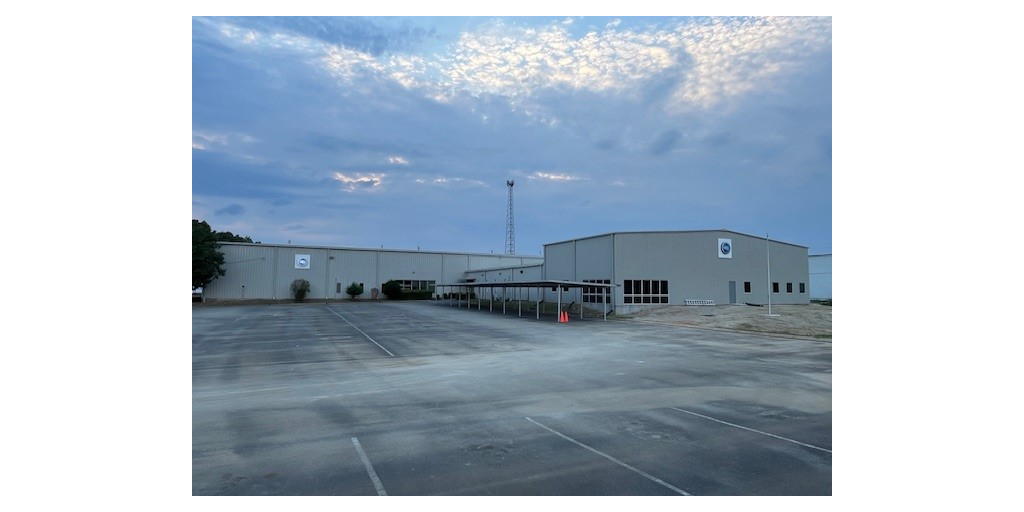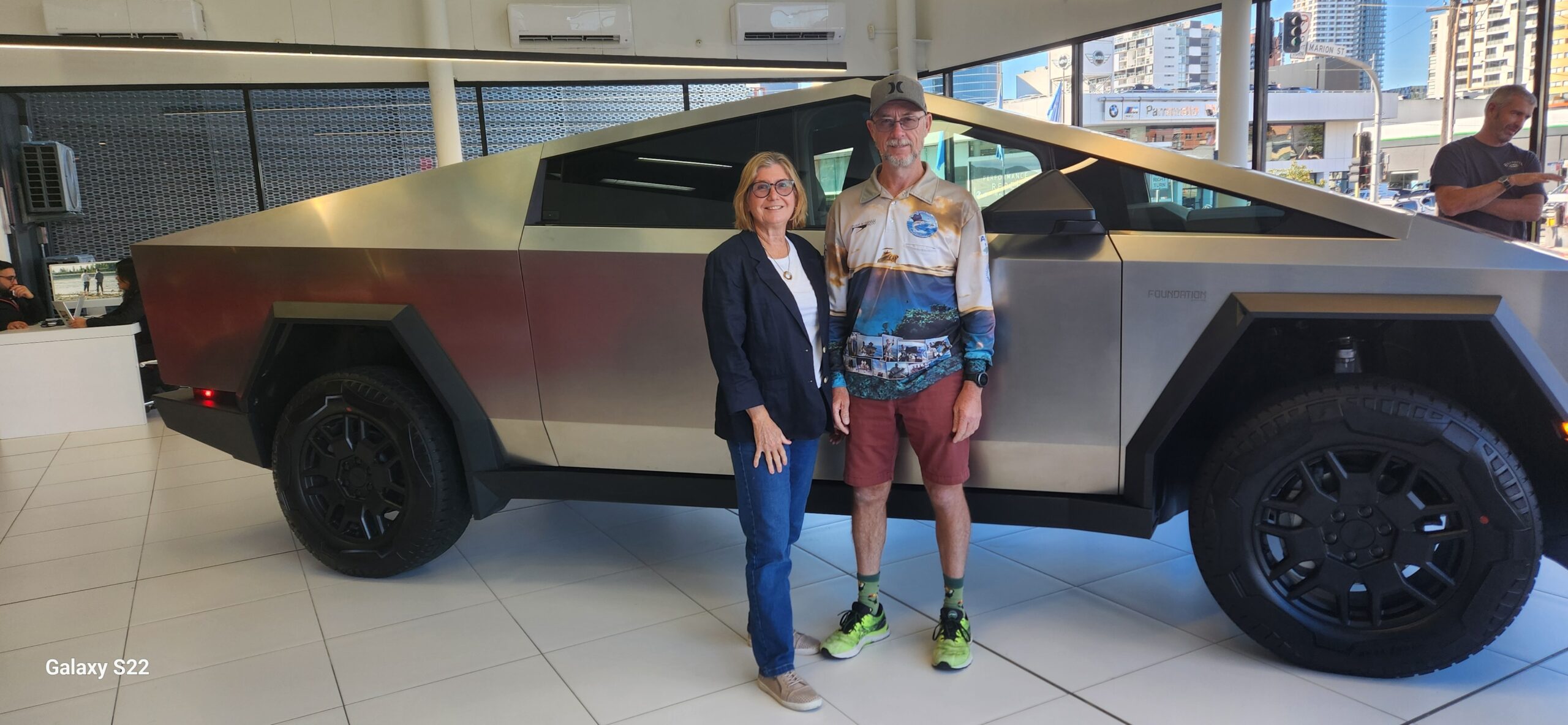Sign up for daily news updates from CleanTechnica on email. Or follow us on Google News!
Skeptics abound, but the EV battery swapping movement is attracting serious attention from automakers. In the latest development, Mitsubishi Corporation has just announced a strategic partnership with the US battery swapping startup Ample, punctuated by an investment of $25 million.
The Benefits Of EV Battery Swapping
If money talks — and it does — $25 million sends another loud and clear message about Mitsubishi’s intentions in the EV battery swapping field.
Mitsubishi began stepping up its commitment to EV battery swapping back in 2022, when it formed a Battery-as-a-Service strategic partnership with Bosch and the Chinese EV battery swapping firm BPSE, a branch of the state-owned Bejing Automotive Group.
The partnership involves deploying Bosch’s cloud-based battery service with BPSE’s battery swapping platform.
As for why do EV battery swapping instead of pulling into an EV charging station, Mitsubishi pointed out that swapping is a better fit for fleet owners, where trucks and other vehicles are often used constantly throughout the day. Swapping takes long charging times out of the picture. The battery-as-a-service model also helps to reduce the up-front cost of purchasing electric vehicles, while also providing EV owners seamless access to the lessor’s battery monitoring systems.
“The demand for electrification is increasing day by day, but the initial investment cost to deploy an EV fleet, the down time during charging, and the uncertain of the battery are some of the major factors preventing electrification of commercial fleets,” Mitsubishi noted.
“Battery-in-the-cloud will continuously monitor and analyze the battery using AI, providing control to the battery to maximize the life & performance and optimize the TOC of the EV Fleet,” Mitsubishi added.
The Long Road To EV Battery Swapping
TOC is short for several different things. If you can figure out the thing that applies to EV fleets, drop a note in the comment thread. I’d say Total Ownership Cost, though here in the US we usually invert the word order to TCO for Total Cost of Ownership.
Either way, in 2022 Mitsubishi and its new partners also announced their intention to develop a proof-of-concept trial in China, and somewhere along the way Mitsubishi hooked up with Ample.
By August of this year, Mitsubishi and Ample were ready to stage their first trial of EV battery swapping on public roads in Kyoto, Japan. The trial deployed the newly refreshed eCanter light duty electric truck from Mistubishi Fuso Truck and Bus Corporation (a branch of Daimler Truck), with the firm Yamato Transport also participating.
The results were encouraging. On August 9, Mitsubishi reported that Ample’s fully automated EV battery swapping station met the goal of a battery swap within five minutes, confirming an off-road demonstration of the system at the 2023 Japan Mobility Show.
That seems pretty impressive, though Mitsubishi indicated that further on-road trials are in order before the technology scales up into the mass market. Streamlining the battery supply chain is one complication. The eCanter, for example, comes in three different battery sizes, and the constant flow of new energy storage technology into the market adds another layer of complexity.
Still, access to the latest technology is a key selling point for EV battery swapping. As Mitsubishi notes, swapping enables drivers to get their hands on the latest EV battery technology without having to invest in a replacement battery or a new vehicle.
EV Battery Swapping & The Affordability Factor
With affordability in mind, the August announcement also sketched out an EV battery swapping lease plan. The lease offering, through Daimler Truck Financial Service Asia Co., applies the on-road swapping trial to the “FUSO Green Lease” for eCanter trucks.
“‘FUSO Green Lease’ provides a comprehensive financial solution that includes maintenance, insurance, a unified contract between parties, operational expertise with truck registration and monthly invoicing mechanism,” Mitsubishi explained.
Mitsubishi also affirmed that its partnership with Ample is ready for the next steps, and that brings us to the new $25 million investment.
As described by Ample, the influx of cash “goes beyond just a financial investment” to engage the two companies in a tightknit collaboration leading to the expansion of Ample’s EV battery swapping business. Mitsubishi lists “mobility, renewable energy, energy storage, and battery reuse and recycling” among its contributions to the partnership.
The renewable energy angle is particularly interesting because a battery swapping business doubles as a large-scale energy storage system, enabling a swapping company to support utility demand-response programs with renewables.
What About Battery Swapping For Passenger Cars?
As for passenger cars, Mitsubishi has already indicated an interest in battery swapping for passenger cars, leveraging Ample’s modular system. The modules are designed to accommodate practically any vehicle.
The Chinese firm U Power provides another example of the battery swapping market for a range of vehicles, deploying a modular system that can scale up to a truck and down to a two-wheeler.
Stellantis is also interested in the idea of EV battery swapping for passenger cars. In December of 2023, the company announced that it is in discussions with Ample to introduce swappable batteries in various areas of its commercial and consumer business, beginning with a trial in Madrid involving 100 of the company’s Fiat 500e electric cars in a car-sharing fleet.
“The Fiat 500e is the highest selling electric vehicle within Stellantis, sold globally and is an EV leader in multiple European markets,” Stellantis explains.
Keep an eye out for news about that Madrid trial. With a car-sharing fleet, drivers don’t have to commit to a battery-as-a-service lease for their own cars, but they still get an opportunity to check out the technology for themselves.
As for the chance of a trial here in the US, that’s a good question. The Biden-Harris administration has devoted much attention to building out the nation’s public EV charging station network with an assist from the $5 billion NEVI funding pot, but the vast majority of existing EV owners still prefer to charge at home. Swapping stations would provide prospective EV buyers with another option, potentially helping to accelerate EV sales.
Ample has been submitting memos to officials in California and the US Department of Transportation, making the case for EV swapping stations to fill gaps in the NEVI program, including the use of clean energy for EV charging.
In a memo to the Federal Highway Administration last April, Ample points that Chinese energy firms already perform “tens of millions of swaps” every year, and Chinese stakeholders are “actively courting major U.S. trading partners in an effort to set joint standards for battery swapping.”
“Unless the United States takes proactive measures to compete in this critically important sector, China is likely to dominate battery swapping globally,” Ample advises.
It’s too bad that the whole EV field faces an uncertain future in the US after President Biden peacefully leaves office on January 20, but perhaps Ample can sway hearts and minds in the new White House with an economic argument. Or, perhaps not.
Follow me via LinkTree, or @tinamcasey on Threads, LinkedIn, and Bluesky.
Photo (cropped): The EV battery swapping startup Ample is joining forces with Mitsubishi to stimulate EV sales with a quick, seamless alternative to charging stations (courtesy of Mitsubishi).
Have a tip for CleanTechnica? Want to advertise? Want to suggest a guest for our CleanTech Talk podcast? Contact us here.
Sign up for our daily newsletter for 15 new cleantech stories a day. Or sign up for our weekly one if daily is too frequent.
CleanTechnica uses affiliate links. See our policy here.
CleanTechnica’s Comment Policy




